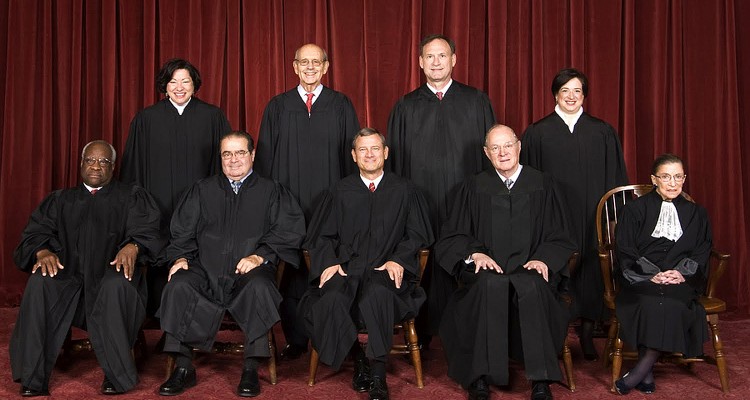On Monday the U.S. Supreme Court declined to review two Indian gaming cases petitioned by the states of Oklahoma and Wisconsin.
One of the issues at hand was whether to accept the Kialegee Tribal Town’s proposal to open what would be the Red Clay Casino on an Indian allotment in Broken Arrow, Oklahoma. The state petitioned the court to hear Oklahoma v. Hobia; the December 2014 Tenth Circuit decision prohibiting the tribe from being sued without its consent. Oklahoma Attorney General Scott Pruitt sought to have the decision overturned even though plans for the casino have been withdrawn by the tribe.
As is customary, the court did not offer reasoning for its decision not to review the appeal proposal. The justice’s decision solidifies another sovereign immunity case, Michigan v. Bay Mills Indian Community. That May 2014 ruling stated that unless an activity occurs within the scope of the Indian Gaming Regulatory Act (IGRA) tribes cannot be sued by states. In the Kialegee case the precedent was cited by the 10th Circuit and has already impacted tribal-state disputes across the country.
While centering on a tribal-state dispute, sovereign immunity was a not an issue in Wisconsin v. Ho-Chunk Nation. A review of a lower courts decision in that case was also rejected Monday. Wisconsin sought to prevent electronic poker from being offered by the tribe at its Madison casino. Although Class III gaming is legal in the state of Wisconsin, the Ho-Chunk Nation’s Madison gaming casino where video poker games were installed isn’t covered under the compact it has with the state. The machines were ordered to be removed by Judge Barbara Crab last June. That decision was reversed on April 17th by the 7th Circuit Court who said the games were Class II. Aiding the reversal was a February 2009 National Indian Gaming Commission determination that said Class II devices are beyond the scope of the state. Monday’s rejection of the petition lets the lower court’s decision stand.
Indian gaming issues are rarely heard by the Supreme Court.


